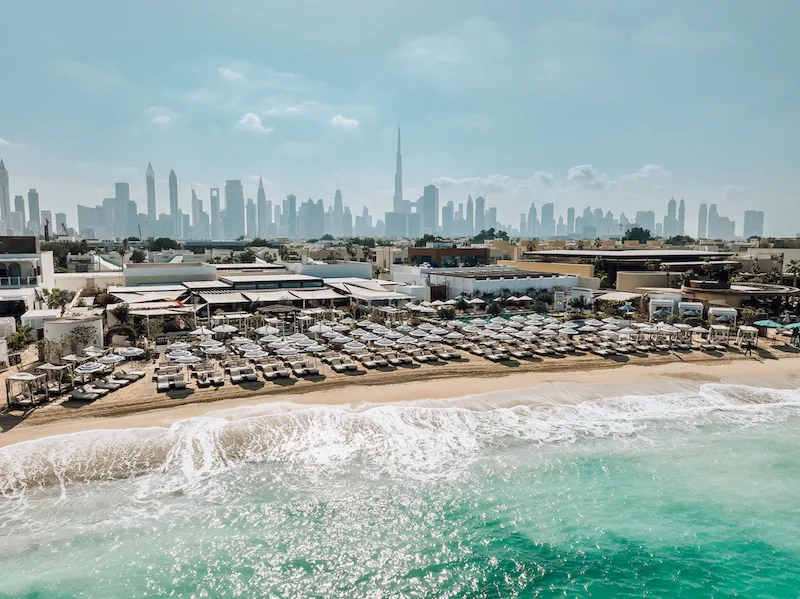In 2019, I visited northern Peru to travel to an area of rainforest that had, at one time, seemed destined to disappear. I was part of a team supporting a successful conservation project in the Amazon, known as the Alto Mayo REDD+ Project, set up in 2008 by Conservation International and Peru’s National Parks Agency. And it is thanks to the REDD+ project that the forest I visited survives today. The project was on the site of a historic nature reserve established by the government in the 1980s. Unfortunately, this so-called “protected area” had been left unprotected for decades in all but name.
DEFORESTATION IS DRIVEN BY ECONOMICS
Over time, people moved into the reserve from far away and began clearing trees to grow coffee, which was done quickly and unsustainably to meet the huge global demand for the drink. The situation was bad. This site was losing forest faster than any other protected area in Peru, but safeguarding it seemed impossible because the economics favoured deforestation. Which is why the Alto Mayo REDD+ Project had begun in 2008.
Members of COOPBAM, a certified fair trade and organic coffee cooperative, harvesting coffee in 2018.

But first, some context: according to the Intergovernmental Panel on Climate Change, deforestation is the fourth largest source of greenhouse gas emissions, five times more than air travel. Avoiding tropical deforestation and restoring forest landscapes can also provide 23 percent of the cost-effective climate mitigation needed by 2030. Forest loss, therefore, poses both one of the most significant challenges for stabilising the climate and one of our greatest opportunities.
As I saw first-hand in the Amazon, deforestation is fundamentally driven by economics. The people there don’t hate trees: they have no choice but to cut them down to make a living. So, to stop deforestation, first we need viable economic solutions that recognise the value of standing forests for the benefit of local communities and governments.
THE ALTO MAYO PROJECT
Thanks to the Alto Mayo project, families gained the right to stay and farm the land in exchange for signing an agreement not to cut down more trees. Communities received training, technical assistance and investment, so they could form farming cooperatives, grow coffee and other products sustainably and to a better quality, and therefore, sell their produce for higher prices. Local people’s lives became more comfortable and suddenly deforestation was no longer profitable. Between 2008 and 2020, deforestation dropped by 59 percent in the region.

In the Peruvian Amazon, Conservation International is working with the Shampuyacu Indigenous community to support women in preserving their forests and in passing on their traditional knowledge, 2019 © CI Peru/ Marlon del Águila.
However, despite these proven successes and the urgent need to protect forests worldwide, actions to mitigate deforestation receive only 2.5 percent of climate finance. As a result, the problem continues to worsen and emissions from deforestation have doubled in the first two decades of this century. To have any chance of addressing climate change, we need to invest into forest communities more than ever before and we need to do it now. Money from governments and philanthropy won’t be enough. We need the private sector too.
The good news is many companies are already stepping up.
REDUCING EMMMISSIONS FROM DEFORESTATION AND FOREST DEGRADATION (REDD+)
This is where REDD+ comes in. Originally envisioned by the UN, it helps companies co-fund the protection of forests by purchasing carbon credits that represent emissions avoided by community conservation projects (called REDD+ projects). This investment means less carbon in the atmosphere, ecosystems and species are protected, and some of the world’s most disenfranchised people can finance their own development goals.
The credits are bought and sold through the voluntary carbon market. While some fear this market helps companies avoid cutting their own emissions, research by an independent NGO shows that companies buying credits are also decarbonising much faster than those that don’t.

Parkrangers in the Alto Mayo Protected Forest, San Martin, Peru, 2015 © Adrián Portugal.
At its root, REDD+ is a simple idea. If a tree is worth more as charcoal, timber or cleared land, it will be cut down. But, if it survives and grants access to clean water, food security, education, healthcare and improved livelihoods, then that tree has more value to the wider community – as was the case for the families of the Alto Mayo in Peru. Today, REDD+ projects protect over three million hectares of forest and cuts carbon emissions by over 63 million tonnes a year.
In order to direct more investment into communities on the frontline of stopping deforestation, we need more of these projects. At the same time, we must grow the voluntary carbon market.
My interest in using markets to fund conservation came early in my career. Back then, environmentalism was a lot about saying “no” to things; a lot of holding picket signs, protest and conflict. There’s definitely a place for that. But I wondered: what would happen if we could leverage the power of saying “yes”? That’s what markets are about – people saying, “Yeah, I want that!” From that ambition, things can grow really fast and last a long time. I believe that we all want to see nature thriving while people prosper.
ECONOMIES OF SCALE IN SUSTAINABILITY
Many environmentalists began to realise that, as markets can scale quickly and provide reliable long-term finance, perhaps this was exactly what forest conservation needed. I put these principles into practice at Rainforest Alliance – a global conservation NGO which works with some of the world’s biggest companies to use markets to promote sustainability.
For example, Lipton Tea – the largest tea brand in the world – committed to meet our sustainability certifications across its whole supply chain in 2007. The journey began in Kenya, where Lipton sourced tea from approximately half a million small-holder farmers. Overnight, a new, market requirement for sustainable tea exploded, and we set out to train those farmers how to meet it. With new techniques, they produced more and better-quality tea on the same amount of land, which improved their economic situation significantly, with no incentive to expand their smallholdings into the forest.
This is what it takes to stop deforestation: a fundamental change in the economics of conservation, driven by market demand.
Sarita has learned how to cultivate wild orchids which now sells to high-end hotels in Lima.

Which brings me back to my time in Peru. I will always remember a conversation I had with a woman named Sarita. Her parents had been the first coffee-growers to break the stand-off with the government and sign an agreement, and initially this bravery brought them hardship. Sarita described to me the death threats they received, but her mother insisted it was the right decision for their family; and it changed their lives. They were able to start making substantially more money without cutting down trees.
With the most immediate financial pressures on her family eased, Sarita trained as a park ranger in the nature reserve. When we spoke, she was working for there part-time; outside of those hours, she learned how to cultivate wild orchids which she sold to high-end hotels in Lima. She described the trajectories of lives transformed by the project, and how the relationship between local people and the forest had totally changed. All made possible because the economics no longer favoured deforestation.
It was a beautiful experience to sit with her and listen to the story of her community. Thanks to tools such as REDD+, every forest community deserves the same opportunity.
Words: Joshua Tosteson
Joshua Tosteson is CEO of Everland, an organisation committed to driving transformative investment into communities at the frontline of stopping deforestation, halting climate change and protecting biodiversity.
Main text, first photo. © Conservation International/photo by Ana Yi.
Main text, orchid photo. © Adrián Portugal, 2015.

















Show Comments +